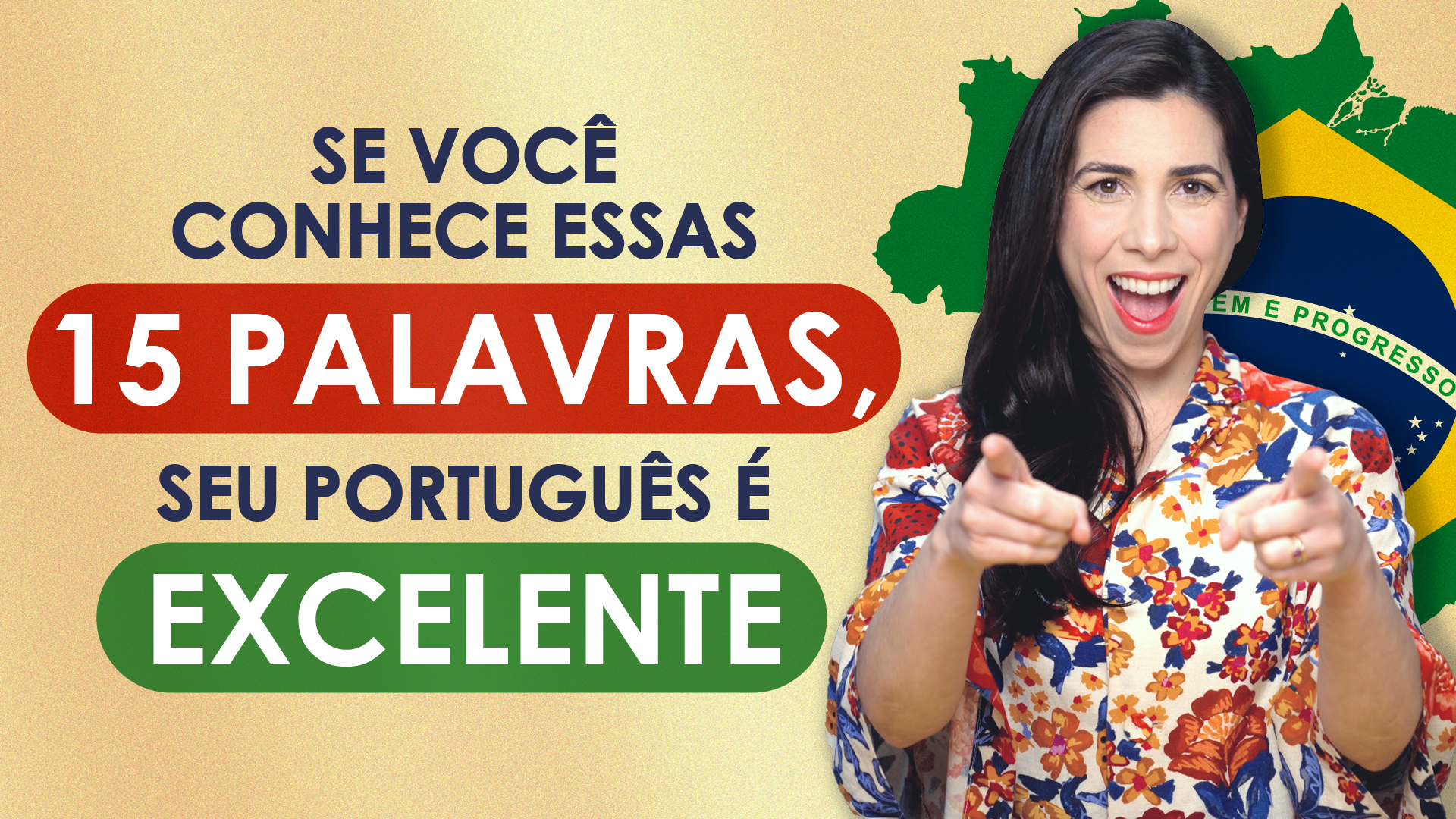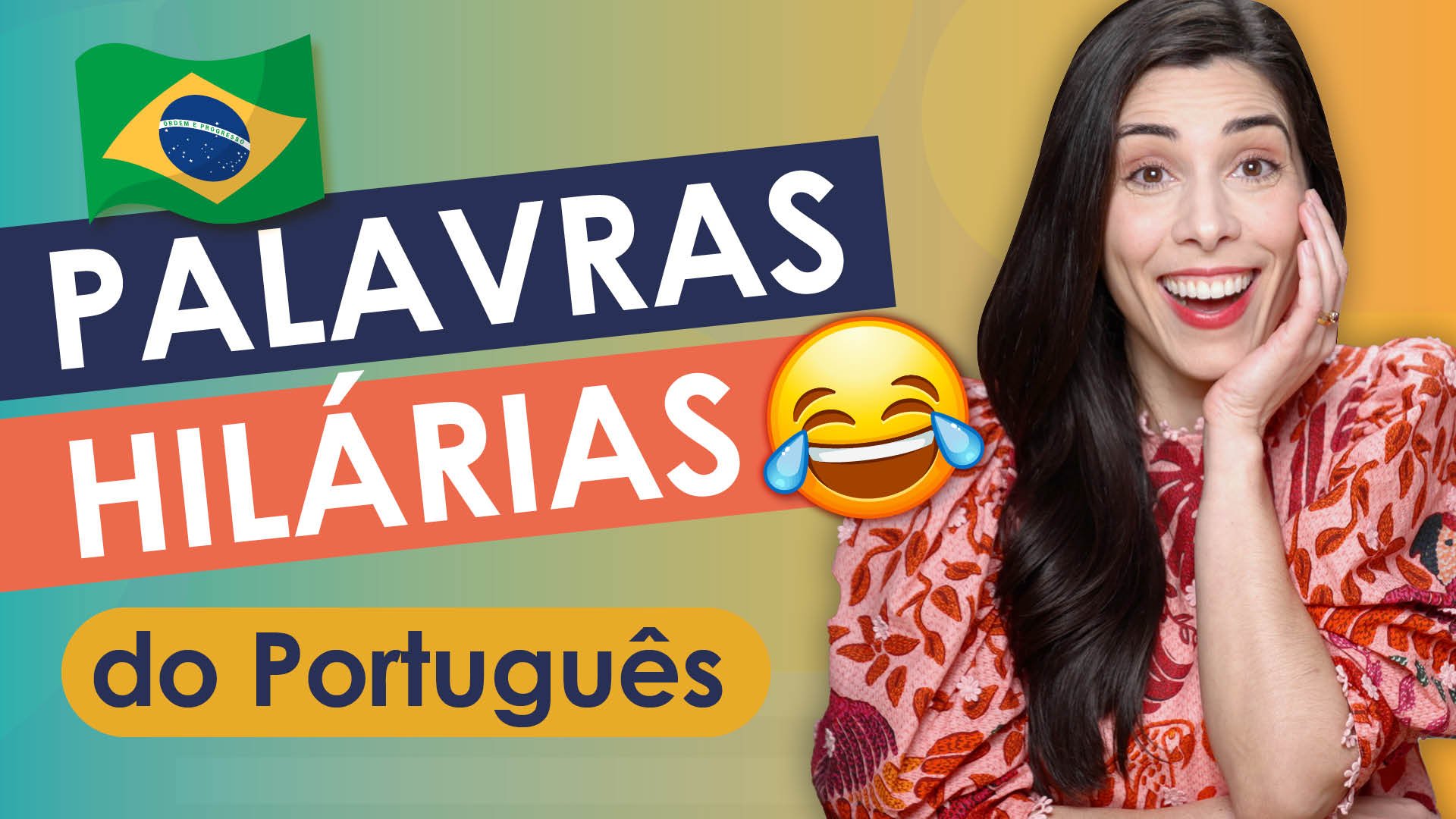Join the Speaking Brazilian YouTube Club to have access to the transcript of this video and many other videos.
Did you know that Brazil is the country with the largest Afro-descendant population outside Africa? More than 50% of our population is of African origin.
For this reason, the Portuguese spoken in Brazil has many words of African origin.
In this lesson, you will learn 12 words of African origin that we use on a daily basis in Brazil.
1. Bunda (butt/ass)
The word “bunda” comes from the Kimbundu language. “Bunda” is an informal way of referring to the rear area of the human body, between the legs and the back.
For example:
– Ana faz muitos exercícios para a bunda. (Ana does many exercises for the butt.)
2. Cachimbo (pipe)
The word “cachimbo” comes from the Kimbundu language. It’s a tool used for smoking.
For example:
– O bisavô de Maria fumava cachimbo após o jantar. (Maria’s great-grandfather smoked a pipe after dinner.)
3. Caçula (youngest)
“Caçula” is the youngest son. This word also comes from the Kimbundu language.
For example:
– Meu irmão caçula gosta muito de ler. (My youngest brother loves to read.)
4. Cafuné (stroking someone’s head)
“Cafuné” means gently stroking someone’s head. This word also comes from Kimbundu.
For example:
– João adora fazer cafuné na Maria. (João loves stroking Maria’s head.)
5. Cochilar (Napping)
The word “chocilar” comes from Kimbundu, and it means sleeping for a short time, taking a nap.
For example:
– Minha avó gostava de cochilar depois do almoço. (My grandmother liked to nap after lunch.)
6. Farofa (Brazilian dish)
The word “farofa” also comes from Kimbundu. Farofa is a dish made with manioc flour and olive oil or oil. It’s a very common dish in Brazil, usually served as a side dish.
For example:
– Maria adora farofa de ovo. (Maria loves egg farofa.)
7. Fubá (cornmeal)
The word “fubá” also comes from Kimbundu. Fubá is a flour made with corn or rice, very common in Brazilian cuisine. Fubá is used to make a cake, and a very common dish in the Northeast called couscous.
For example:
– Maria fez um bolo de fubá muito gostoso. (Maria made a very delicious cornmeal cake.)
8. Moleque (kid / imp)
The word “moleque” also comes from Kimbundu, and originally means boy or child. This word is used to refer to a mischievous, restless, playful child, or someone who is of bad character and irresponsible.
For example:
– Joãozinho é um moleque travesso. (Joãozinho is a naughty kid.)
9. Moqueca (Brazilian dish)
Moqueca is a typical dish of Brazilian and Angolan cuisine, usually made with fish, but it can also be made with vegetables. The word “moqueca” also comes from the Kimbundu language.
For example:
– Moqueca de banana da terra é meu prato brasileiro favorito. (Plantain moqueca is my favorite Brazilian dish.)
10. Muvuca (noisy crowd)
The word “muvuca” comes from the Kikongo language, and it means an agglomeration of people with a lot of noise.
For example:
– No verão, as praias de Florianópolis têm muita muvuca. (In the summer, the beaches of Florianópolis are crowded.)
11. Quitanda (greengrocer)
The word “quitanda” also comes from Kimbundu. A “quitana” is a small store where fresh products such as fruits and vegetables are sold.
For example:
– Maria compra frutas na quitanda todas as semanas. (Maria buys fruit at the grocery store every week.)
12. Samba
The word “samba” comes from the Kikongo language. Samba is a dance and one of the most popular musical genres in Brazil.
For example:
– Nem todo brasileiro sabe dançar samba. (Not every Brazilian knows how to dance samba.)
That’s it! I hope you enjoyed learning a little bit about some words of African origin that we use in Brazil. Of course, there are many other words of African origin that we use in Brazilian Portuguese.
I’d like to know if you already knew these words. What other words of African origin do you know? Leave a comment below with your answer.
Até a próxima!


